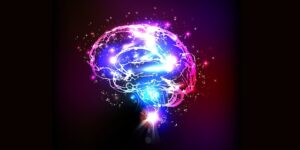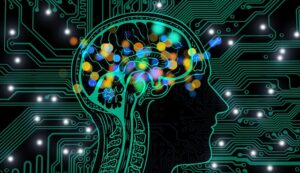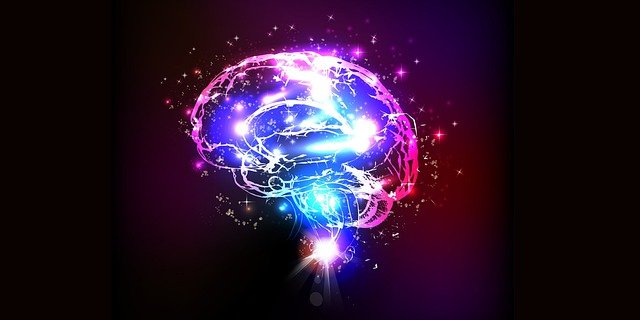
The brain is the most sophisticated organ in the human body.
Many people believe that a person’s brain only ever exercises 10% of its capacity.
Is there any truth to this statement?
The brain has around 100 billion neurons and weighs about 3 pounds. cells that transmit information between neurons and these connections (synapses) form the basis of memory and thought processes.
The brain’s capacity is often compared to that of a digital computer where we can input, store and process information.
Does the human brain only utilize 10%?
No, this statement is false. Some people believe that there are two types of brains – “left brain” (logical, analytical) and “right brain” (creative, imaginative).
However, this is not true.
The right hemisphere of the brain handles visual-spatial information while the left hemisphere handles language.
Indeed in different areas of our brains, we can be more dominant. For example, in mathematics, most people are either left or right brained.
A study on cerebral blood flow has shown that we use all of our brains.
The 10% is not entirely true, while some parts do not get used that much (for example in some individuals language processing may happen more in the left hemisphere while other people it might be the opposite), there is no part of our brain that is not used at all!
In conclusion, this statement is false.
In fact, more recent studies have shown that we use more than 10% of our brain capacity. The number might be closer to 20-30% of what the human mind can process.
The brain is an incredibly complex organ that still has many mysteries in store for scientists. However, it would be wrong to say that we only use 10% of our brain capacity.
Other parts are activated at the same time which controls how information is stored and processed.
Where does the myth of 10 percent come from?
The myth of only using 10% comes from the fact that most people are not born with both hemispheres of their brain being dominant.
That said, it’s not like some parts are turned off or non-functional!
In fact, there have been significant breakthroughs in neuroscience that have shown that the brain is much more complex than we ever could have imagined.
Several parts of the brain are working at a time and information is being processed throughout.
We use 100% of our brains all the time! It’s just about how much we can process at a given time.
How much of our brain do we utilize?
It’s hard to say for sure, but many studies have found that we are using pretty much all of our brains.
The 10% number comes from people who would argue that since we only use one side of the brain, it is only processing 10%.
However, this isn’t entirely accurate – there are two hemispheres in the brain, but one is not entirely dormant. Instead, different tasks are associated with each hemisphere.
For example, the left side of the brain usually deals with language processing while the right handles visual spatial information.
One study done by Stanford University found that using imaging technology they were able to see which parts of the brain would light up when people saw sentences or heard certain sounds.
This means that the entire brain was being used, even if certain departments were more active than others.
Related Brain Myths

The number of myths surrounding the brain is almost too numerous to count.
Here are just a few other common misconceptions that people believe about their brains:
- Everyone uses their brain differently.
- There are 100,000 miles of blood vessels in the brain.
- Your personality is determined by which side of your brain is dominant.
- Amnesia is the inability to remember who you are.
- Puberty is the final period in which brain growth occurs.
- When we sleep, our brains cease to function.
- Damage to the brain causes irreversible loss of function, especially in those over 65.
- Brain exercises improve cognitive function and slow mental deterioration.
- In old age, the brain’s ability to function decreases dramatically.
All these myths contain parts of truth but are not entirely accurate on their own.
Instead, it all depends on how you define them and are open to interpretation.
For example, yes, everyone uses their brain differently since it’s connected to personality and skillset.
However, many people do use similar parts of their brain for certain tasks which means that there are probably more similarities than differences.
Similarly, there is no way to know exactly how long blood vessels in the brain are without cutting into someone’s head.
Sure, there are probably 100,000 miles worth but it’s hard to put a number on them without surveying the entire brain!
For example, the phrase “blood vessels in the brain” is not accurate.
Instead, many people believe that the blood vessels are separate arteries and veins which are intertwined throughout. Because of this, there is no set way to calculate how many miles worth of vessels are in the brain.
How to Improve Your Brain’s Function?
All this isn’t to say that we can’t improve: learning and training your brain is one of the best things you can do for your health!
From exercising to playing games, you’re taking charge of your mind and pushing it to new limits.
Some researchers have found that while we take care of our brains every day, there are still steps we can take to make sure that our brains are performing at their best.
- See also: The brain can recall and reactivate prior immunological responses
- See also: Most incredible brain facts
Here are some ways you can improve your brain’s function.
- Keep exercising daily
Physical activity is key for keeping the body healthy, but it also helps keep the brain active and improve upon skills necessary for memory, focus, and more.
- Set goals
Set aside time for reviewing your goals and plans for the future. This will help you focus on what matters most to you.
- Know your triggers
Do you get stressed easily, or are there certain foods that keep causing problems? Once you understand these issues, you can counter them more effectively.
- Eat healthy food
Use the 80/20 rule or whatever works best for your schedule, but be sure to eat healthy foods that are good for the brain.
- Consider supplements
There may be times when you need a little extra help keeping your brain sharp and focused. Supplements can often offer that edge without any side effects.
- Stay positive
It’s important to stay positive and look at the bright side of life. This can help you remain happier and healthier in the long run.
- Get enough sleep
Sleep is an important part of keeping all functions in the body and brain working properly.
- Maintain a healthy lifestyle
While taking care of your body and exercising, remember to stay positive and consider supplements if necessary!
These tips for improving your brain’s function can help you make sure that you’re doing what’s best for your memory, focus, and mind.
If you’re not sure where to start with these tips, consider setting up an appointment with a local specialist who can help you better understand how to make changes in your life.
Conclusion
When it comes to the human body, many people believe that what you see is exactly how it is. However, there are other factors to consider, too.
Instead of focusing on one particular organ or system in the body, look at all of them together and think about how they work together.
The brain is no exception since this region controls all aspects of the body.
From thinking, to feel, to breathing, the brain is in charge and it performs these functions all day long. While we may not know exactly how it does this just yet, there are plenty of theories!
One thing that many people don’t learn about brains until later on in life is their ability to change.



